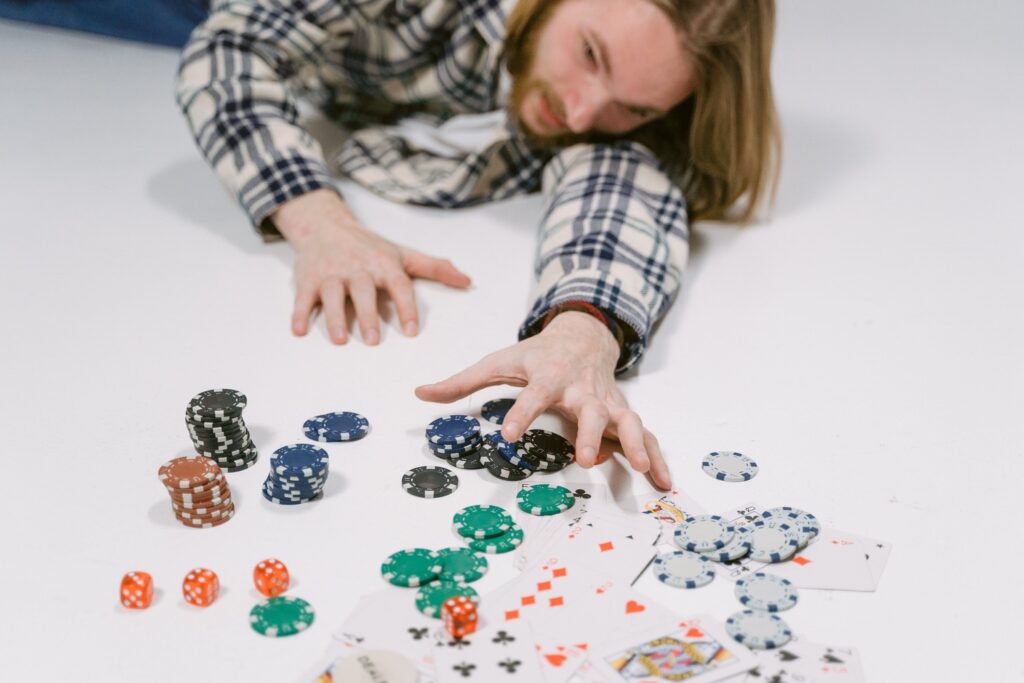
Gambling, an activity dating back millennia, has always been accompanied by an intricate web of beliefs and superstitions that vary widely depending on one’s culture – including foreign casinos where specific customs and rituals often define the gaming experience.
From ancient civilizations’ dice rolling to today’s casinos such as casinosinternacionalesonline.com, the psychology of luck and fate plays an integral part in how players approach games of chance.
This article delves into the fascinating history and origins of gambling superstitions, their impact on modern gambling practices such as those practiced at a popular casino in Spain, and how these superstitions have pervaded modern society.
Gambling Superstitions
The history of gambling superstitions dates back to ancient cultures where games of chance were often linked with religious practices. Dice made from ivory or wood was commonly believed to be blessed by divine favor; accordingly, rituals were performed before engaging in gambling activities.
In ancient Rome, gambling was not simply an amusement but also an integral part of society. Romans practiced various superstitions surrounding luck, from divination to seeking signs in nature or divination itself. One popular belief among Romans was that certain numbers were more auspicious than others; for instance, seven was considered auspicious and frequently appeared as the subject of gambling games; this notion has persisted through time and influences players today.
Asian cultures also practice gambling practices that rely heavily on superstitions. Chinese culture considers the number eight especially fortunate due to its phonetic similarity to the word for wealth; this belief pervades all aspects of life including gambling. Therefore, Chinese players often select combinations involving eight when placing bets hoping to attract good luck and hope their bets bring good fortune with them.
Common Gambling Superstitions
Gamblers worldwide have long embraced superstitions that symbolize the essence of gambling, often borrowing from various cultures while maintaining shared beliefs. One prevalent superstition is the use of “lucky charms,” such as rabbit’s feet or four-leaf clovers, which players carry to enhance their odds of success. Conversely, the notion of “bad luck” is significant; many avoid the number 13, considered ominous, leading casinos to omit it from gaming tables. Rituals also play a crucial role; players often engage in specific behaviors—like crossing fingers or wearing lucky items—before betting, providing a sense of control in an unpredictable environment.
The Role of Gambling Superstitions in Modern Casinos
As gambling has grown into an industry, superstitions continue to play an influential role. Casinos recognize these beliefs and frequently tailor their environments in order to enhance players’ psychological aspects of gambling; using colors, symbols, and designs aimed at invoking feelings of luck and excitement as intentional components of design choices in casinos is common practice.
Many casinos use red, which has come to symbolize good fortune across cultures, particularly Asian-themed ones where it is thought to attract prosperity. Furthermore, gaming tables usually try to avoid using 13 as their number is often seen as sacred by players and this affects the layout.
Slot machines–where the outcome is entirely dependent upon chance–have also given rise to unique superstitions. Gamblers frequently believe that specific machines experience “hot” or “cold” streaks, leading them to select specific machines according to perceived luck or avoid certain ones if others have recently won from them, fearing they won’t pay out soon again.
Online gambling has given rise to new forms of superstitions. Online players often mirror rituals and beliefs seen in traditional settings, such as waiting for an auspicious moment before placing bets or using virtual charms and symbols to influence outcomes – these behaviors show the depth of these beliefs in our gambling psyche.
Gambling Superstitions
Understanding the psychology behind gambling superstitions sheds light on why they persist across cultures and generations. Superstitions provide players with a sense of control during an otherwise unpredictable activity such as gambling. Rituals or lucky symbols help gamblers feel they can influence outcomes, thus decreasing anxiety levels and enriching overall experiences.
Cognitive biases also play an integral part in strengthening superstitions. Gamblers, for instance, can experience the “illusion of control”, believing their actions have the power to alter random outcomes. When one wins after performing a certain ritual or practice they attribute their success directly to that act and further their belief in superstition.
Social factors also play a part in perpetuating gambling superstitions. Players often adopt rituals from friends or family that establish a shared culture surrounding gambling practices – making the activity itself a more engaging social experience.
Gambling superstitions provide us with an intriguing glimpse of human psychology and culture. From ancient rituals to contemporary casino practices, these beliefs have persisted across time and geography, shaping the gambling experience across time and geography. As players seek ways to increase their odds of winning and influence luck directly, superstitions may remain part of the gambling landscape, representing humankind’s timeless desire for control in times of uncertainty.